
Praise for The Struggle Is Eternal
Joseph Fitzgeralds The Struggle Is Eternal is the first book to fully examine the Cambridge movement and its leader, Gloria Richardson. In 1963, I saw that unforgettable magazine photograph of Gloria Richardson calmly facing an armed contingent of soldiers who were sent to put down the movement she led in Cambridge, Maryland. Mrs. Richardson evolved into a civil rights leader whom the authorities considered almost as dangerous as Martin Luther King Jr. She remains engaged in the struggle for social justice to this day. I am thrilled that Fitzgeralds work allows a broader audience to know Gloria Richardson, and to enhance their understanding of the civil rights movement, in which she played a significant role.Kathleen Cleaver, Emory University School of Law, and former communications secretary of the Black Panther Party
Joseph R. Fitzgeralds The Struggle Is Eternal: Gloria Richardson and Black Liberation provides the deepest exploration to date of one of the most significant, complex, and overlooked female leaders of the modern black freedom movement. Gloria Richardsons distinctive activist history brings into sharp relief broader debates over nonviolence and armed self-defense, civil rights and Black Power, models of black political leadership, and the roles of women in the movement, as well as the relationship between local campaigns and national racial change. Fitzgeralds analysis is a part of an important, growing body of historical work that challenges, complicates, and ultimately enriches popular conceptions of the movement era.Patrick D. Jones, The Selma of the North: Civil Rights Insurgency in Milwaukee
The Struggle Is Eternal: Gloria Richardson and Black Liberation is such a necessary and welcome addition to the canon of scholarship that analyzes SNCC, the Black Power movement, and the struggle for racial equity in America. This incredibly detailed book clearly lays out Richardsons dedication to the Cambridge movement, the black radical movement, and the overall fight for black liberation. Richardson is tireless in her efforts and there is finally a book to honor and contextualize her many contributions not just to black history, but to American democracy.Christina M. Greer, author of Black Ethnics: Race, Immigration, and the Pursuit of the American Dream
Fitzgerald has written the definitive biography of Gloria Richardson, arguably the least-known civil rights activist of the 1960s. By delving deep into available written sources as well as making use of multiple interviews with Richardson, family members, and Richardsons compatriots, he presents a vivid picture of a woman who stood alongside Rosa Parks and four others who were honored at the 1963 March on Washington as the Negro Women Fighters for Freedom. Fitzgeralds biography of Richardson enhances our understanding of the civil rights movement of the 1960s by adding new layers of geographic, gender, and ideological complexity to it. At the same time, Fitzgerald makes it clear that Richardsons life and beliefs remain relevant to anyone who has an interest in the ongoing struggle for human rights today.Peter B. Levy, author of Civil War on Race Street: The Civil Rights Movement in Cambridge, Maryland
The Struggle Is Eternal
 The
The
STRUGGLE
 Is
Is
ETERNAL

GLORIA RICHARDSON
AND BLACK LIBERATION
JOSEPH R. FITZGERALD

Due to variations in the technical specifications of different electronic reading devices, some elements of this ebook may not appear as they do in the print edition. Readers are encouraged to experiment with user settings for optimum results.
Copyright 2018 by The University Press of Kentucky
Scholarly publisher for the Commonwealth,
serving Bellarmine University, Berea College, Centre
College of Kentucky, Eastern Kentucky University,
The Filson Historical Society, Georgetown College,
Kentucky Historical Society, Kentucky State University,
Morehead State University, Murray State University,
Northern Kentucky University, Transylvania University,
University of Kentucky, University of Louisville,
and Western Kentucky University.
All rights reserved.
Editorial and Sales Offices: The University Press of Kentucky
663 South Limestone Street, Lexington, Kentucky 40508-4008
www.kentuckypress.com
Maps by Dick Gilbreath, independent cartographer.
Library of Congress Cataloging-in-Publication Data
Names: Fitzgerald, Joseph R., 1965 author.
Title: The struggle is eternal : Gloria Richardson and black liberation / Joseph R. Fitzgerald.
Description: Lexington, Kentucky : The University Press of Kentucky, [2018] |
Series: Civil Rights and the Struggle for Black Equality in the Twentieth Century | Includes bibliographical references and index.
Identifiers: LCCN 2018027368 | ISBN 9780813176499 (hardcover : alk. paper) | ISBN 9780813176536 (pdf) | ISBN 9780813176543 (epub)
Subjects: LCSH: Richardson, Gloria, 1922 | African American women civil rights workersBiography. | Cambridge Nonviolent Action Committee (Cambridge, Md.)
Classification: LCC E185.97.R535 F58 2018 | DDC 323.092 [B] dc23
LC record available at https://lccn.loc.gov/2018027368

This book is printed on acid-free paper meeting the requirements of the American National Standard for Permanence in Paper for Printed Library Materials.
Manufactured in the United States of America.
Member of the Association of University Presses
To the people of the Student Nonviolent Coordinating Committee. You made the United States a better place for everyone.
Contents
Introduction
On a cool afternoon in late September 2016 former civil rights activist Gloria Richardson sat with one of her granddaughters outside the National Museum of African American History and Culture, where they were participating in the facilitys grand opening ceremony. Her granddaughter took photos throughout the day, some of which show Richardson in deep thought as she surveyed the museums section on the modern civil rights movement. The visit gave Richardson a surreal feeling because, as she moved through the facility, she encountered displays about people she had known personally and events she had lived through, some of which dated back to the mid-1920s. Interestingly, most of the people at the museum that day had no idea they were in the presence of such an important American, and they had probably never heard about Richardsons role in making the nation a better place to live. They can be excused for not knowing this because many of the people who worked with Richardson after the 1970s were also unaware of her activism, and the same was true of her extended family. Years ago, when Richardson was visiting relatives, her granddaughters in-laws were talking about the Cambridge movement in Maryland and wondering about its leader. One of them asked, Whatever happened to that woman in Cambridge? Richardsons eldest daughter replied, Why dont you go and ask her? Shes downstairs.
Next page
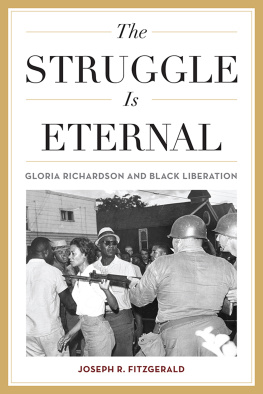
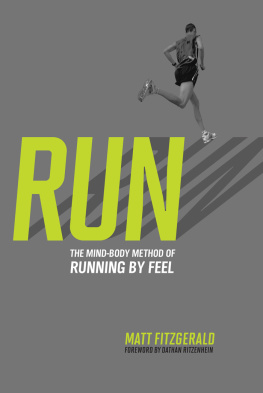
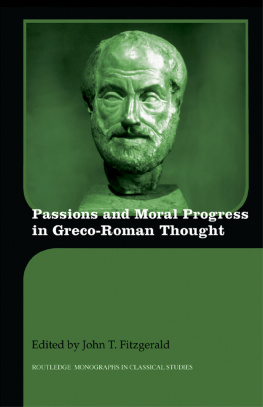
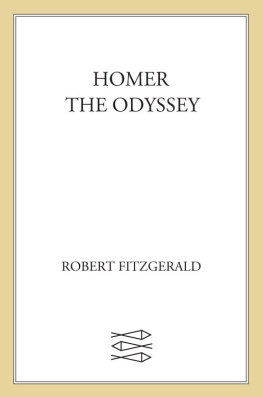
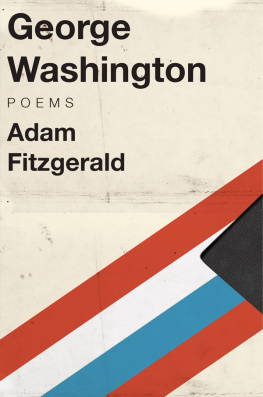

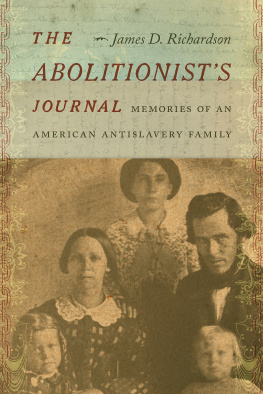
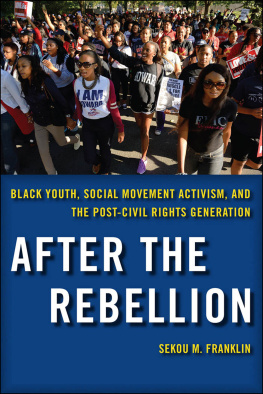
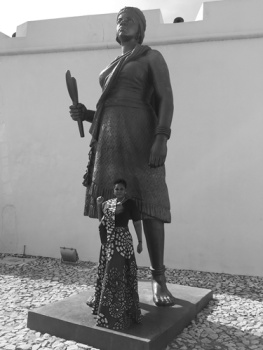
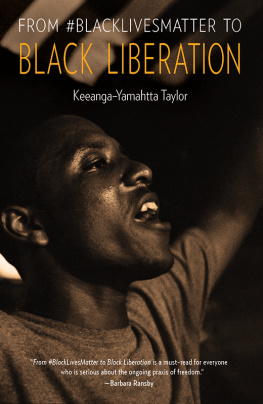
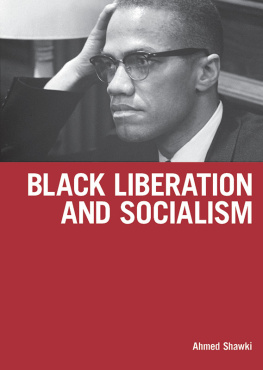
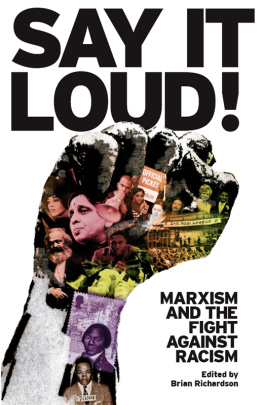
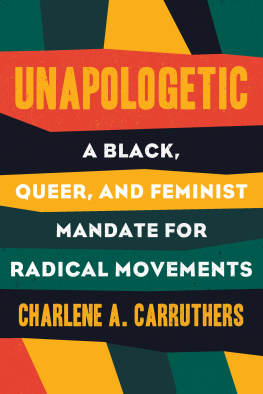
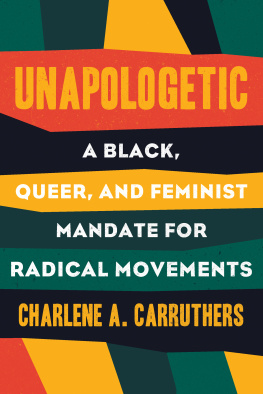
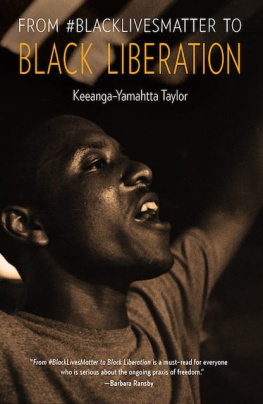

 The
The

